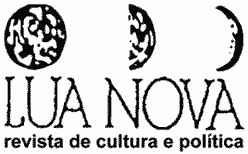Resumo em Português:
Sugere-se uma comparação da Revolução Russa de 1917 com a Revolução Francesa de 1789 e a Revolução Inglesa de 1640. Se uma Revolução tornou-se possível na Inglaterra, na França e na Rússia, foi porque, nos seus antigos regimes, produziu-se uma divisão fatal no establishment, vale dizer, entre classes e/ou frações de classes dominantes e o poder. A difusão e a força do puritanismo, do iluminismo e do socialismo, nas sociedades inglesa, francesa e russa do antigo regime, eram a um só tempo sintoma e conseqüência desse mal-estar espiritual e desse conflito político no interior de suas respectivas classes dominantes (e destas, obviamente, com relação às classes dominadas). Em contrapartida, e como uma espécie de contraprova ao que se está afirmando, nem na Prússia/Alemanha, nem no Piemonte/Itália, em 1848-1849 e em 1918-1919, existiu algo semelhante; daí a impossibilidade de uma revolução nesses dois países e nesses dois momentos cruciais.
Resumo em Inglês:
The article suggests a comparative view on the Russian Revolution of 1917, the French Revolution of 1789 and the English Revolution of 1640. It argues that a revolution became possible in England, France and Russia because a fatal split broke the old regime's establishment, that is to say, a divide between classes, and/or fractions of upper classes, and power. The strenght and diffusion of puritanism, enlightenment and socialism througout old regime's English, French and Russian societies, were both the sign and the effect of that spiritual malaise and that political conflict within their respective upper classes (and so, of course, in relation to their subordinate classes). On the other hand, as a counterproof of what it is just said, neither Prussia/Germany nor Piemont/Italy, in 1848-1849 and 1918-1919, had something similar; so that a revolution was impossible in those countries and crucial moments.
